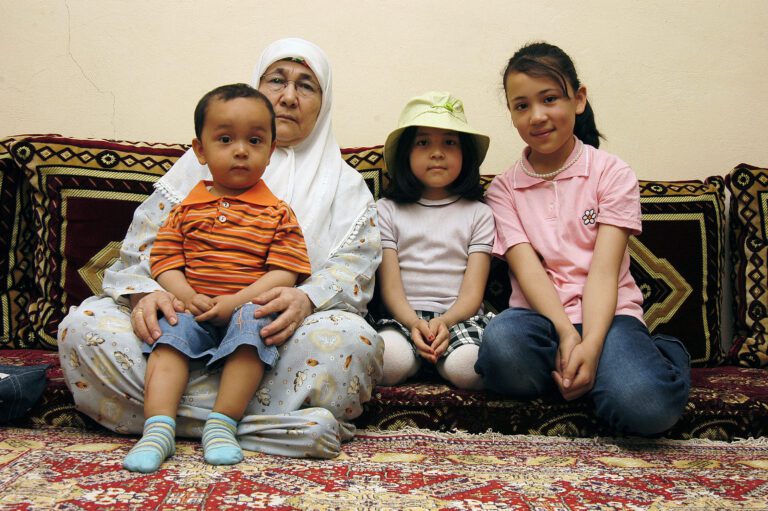The U.S. refugee resettlement system is evolving rapidly. Shifting policies and new technologies are reshaping how services are delivered, often in ways that directly impact both refugees and the service providers who support them. Yet despite their central role, the voices of service providers are rarely captured systematically. Without their perspective, policymakers and program leaders risk making decisions that overlook the realities on the ground.
Switchboard launched the Annual Survey of Refugee Service Providers (ASRSP) in 2024 to address this gap. By focusing on the workforce that powers resettlement, the ASRSP is creating new opportunities to improve both policy and practice.
Introducing the ASRSP
The ASRSP is designed to do two things:
- Highlight the provider perspective. The survey examines how the backgrounds, health, and professional well-being of service providers affect the services they deliver. This helps identify ways to support the workforce more effectively.
- Track the impact of change. The survey documents how evolving policies and emerging technologies influence service delivery, including the integration of digital tools that aim to expand reach and efficiency.
Together, these insights will inform a data-driven approach to strengthening refugee resettlement to ensure that both refugees and providers thrive.
How It Works
Switchboard will administer the ASRSP annually to a sample of staff selected from across the U.S. refugee resettlement network. Participants complete an online questionnaire (30–40 minutes) that covers background, professional well-being, and service delivery. Responses are fully anonymous, protecting both individuals and organizations while maintaining high standards for data quality.
Conducting the survey annually allows the ASRSP to do more than take a snapshot: It will track changes over time, showing how evolving policies and practices affect providers and, in turn, refugee outcomes.
Early Insights from the ASRSP Pilot
In fiscal year (FY)25 (October 2024 to September 2025), Switchboard piloted the ASRSP with a sample of 346 service providers. The pilot’s primary goal was to develop and test a standardized questionnaire, but it also generated valuable early insights:
- A varied yet united workforce. Service providers came from a wide range of backgrounds and levels of experience. Despite differences, they shared a strong commitment to improving effectiveness and efficiency to support refugee self-sufficiency and integration.
- Enthusiasm for the initiative. Many participants welcomed the ASRSP as a tool for identifying barriers and opportunities to improve practice. There was clear recognition of its potential to shape higher-quality services.
- Well-being matters. Respondents endorsed the ASRSP’s focus on provider health and professional well-being. Many highlighted the connection between their well-being and the quality of support they could offer refugees.
- Data quality confirmed. Responses were robust and relevant, validating the survey’s design and approach. The pilot demonstrated that the ASRSP can generate reliable data capable of tracking meaningful change over time.
While not intended to produce reportable findings, the pilot showed that the survey could capture variation in key areas such as burnout, self-efficacy, social support, and institutional trust. These variations are crucial for analyzing how provider experiences interact with broader policy and practice shifts.
Next Steps
Building on the pilot, Switchboard is refining the ASRSP instrument and preparing for the first full-scale survey launch in FY26. The goal is to expand participation, deepen engagement with service providers, and strengthen partnerships with agencies and policymakers who can put the findings of the ASRSP into action.
Importantly, the ASRSP is designed to complement the Annual Survey of Refugees (ASR), funded by the Office of Refugee Resettlement (ORR) and conducted by the Urban Institute. While the ASR captures refugee perspectives, the ASRSP adds the provider perspective, offering a fuller picture of how resettlement works in practice and how it can be improved.
Why This Matters and How You Can Support
The ASRSP represents a unique opportunity to elevate the voices of those who make refugee resettlement possible. By capturing and analyzing service providers’ perspectives, this survey ensures that future policies and practices are grounded in the realities of the frontline workforce.
For policymakers, the ASRSP offers evidence to shape smarter, more responsive policies. For agencies and practitioners, it provides a mirror to identify strengths, challenges, and opportunities for innovation.
Key Benefits of the ASRSP
- Frontline Insights
Service providers see firsthand how policies and technologies shape refugee resettlement. The ASRSP captures your voices systematically for the first time. - Workforce Well-Being
Provider health and resilience directly impact refugee outcomes. The ASRSP tracks stress, burnout, and support systems to inform smarter workforce investments. - Smarter Policy and Practice
By complementing ORR’s Annual Survey of Refugees, the ASRSP ensures decisions are guided by both refugee and provider perspectives—creating a more effective, data-driven and evidence-based resettlement system.
The success of the ASRSP will depend on broad participation and support across the resettlement field. By engaging with this initiative, stakeholders can help build a stronger, more resilient workforce and, ultimately, more effective pathways to refugee integration and self-sufficiency.
The IRC received competitive funding through the U.S. Department of Health and Human Services, Administration for Children and Families, Grant #90RB0053. The project is 100% financed by federal funds. The contents of this document are solely the responsibility of the authors and do not necessarily represent the official views of the U.S. Department of Health and Human Services, Administration for Children and Families.









